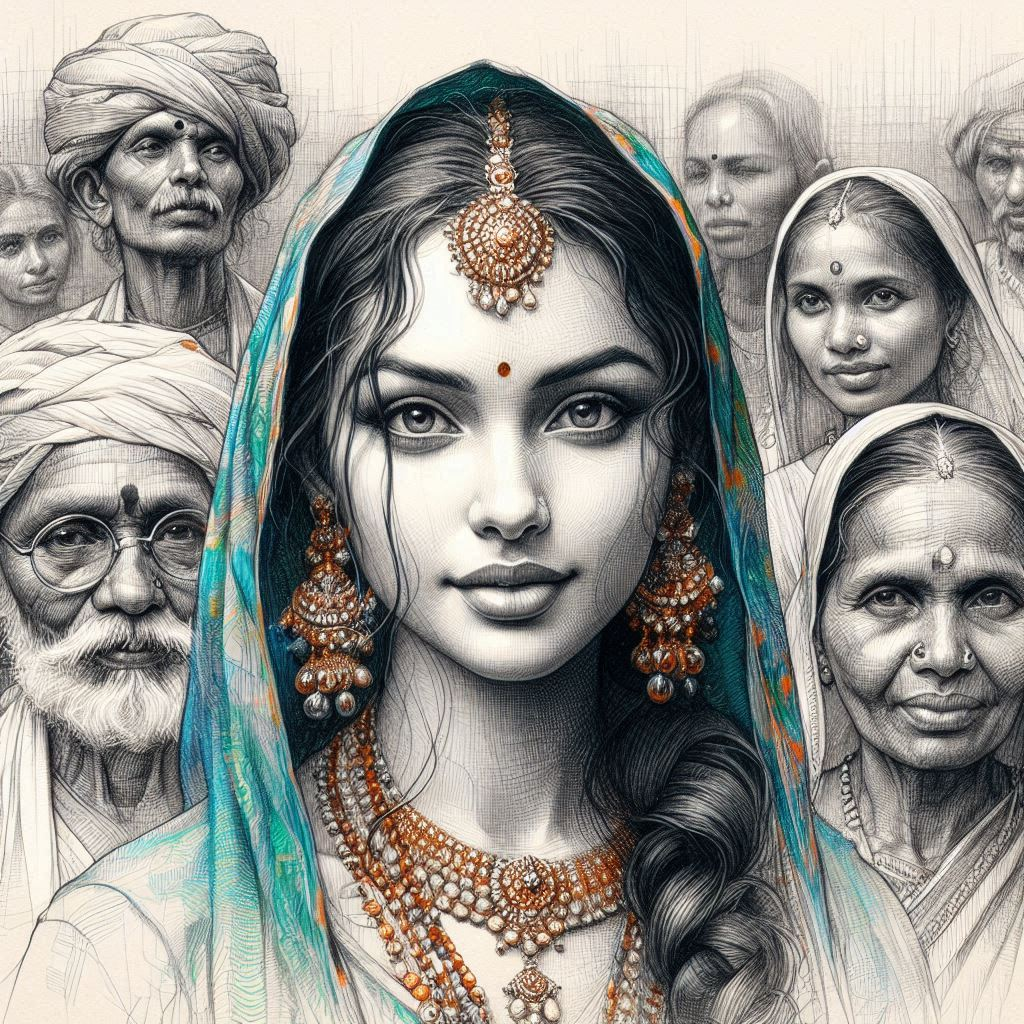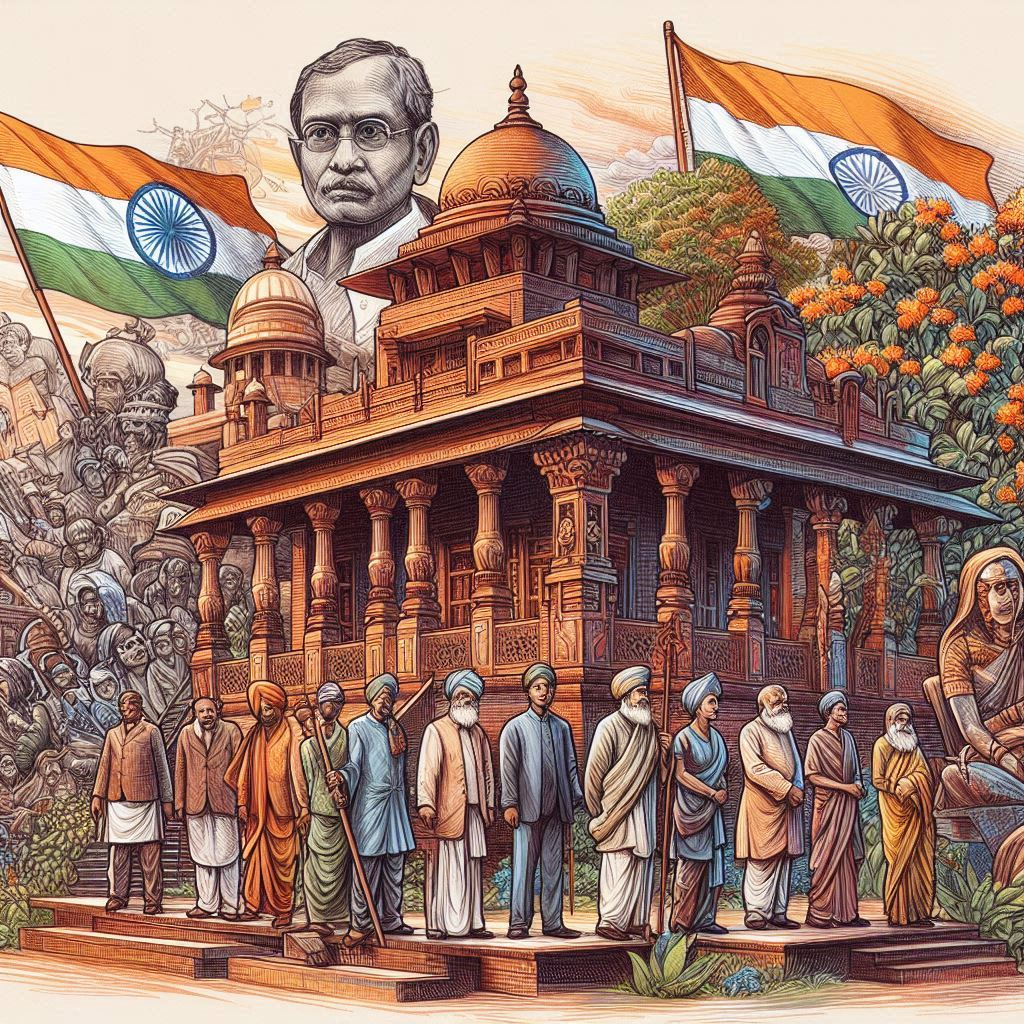Dr. Ashwani Kumar and Dr. Vikas Bhandari
“Being modern isn’t just about following trends; it’s about understanding the phenomenon behind them.”
The contemporary Indian culture appears to embrace modern values; a closer look reveals that much of what is considered “modern” reflects an unconscious adherence to traditional practices and Western influences. This phenomenon can be understood through Carl Jung’s concept of the collective unconscious, which suggests that deeply ingrained cultural patterns persist beneath the surface of apparent modernity. Traditional behaviors, encoded in the collective unconscious, continue to shape contemporary practices without critical reflection. Despite the superficial adoption of Western ideals, underlying traditional norms, such as hierarchical social structures and familial roles, remain influential. Thus, achieving genuine modernization requires a conscious integration of traditional values with contemporary principles, promoting cultural evolution that respects heritage while embracing innovation.

Traditional vs. Modern Cultural Behavior
To truly understand why traditional practices, continue to thrive in modern Indian culture, it’s helpful to look at them through Max Weber’s ideas about traditional and rational action. Weber’s concepts offer a clear way to see how some cultural behaviors are rooted in long-standing customs, while others are shaped by contemporary, rational thinking. By examining these practices through Weber’s lens, we can better understand how historical traditions and modern rationality coexist and influence each other in today’s society.
Traditional Cultural Behavior
Traditional cultural behavior, as defined by Weber, involves actions that are deeply rooted in historical customs and have been inherited from previous generations. These practices are often performed out of habit and adherence to long-standing norms, without critical reflection on their relevance in contemporary contexts. Weber describes these actions as “traditional actions,” which are guided by established norms and customs rather than conscious deliberation. In this sense, traditional behavior reflects a form of social action that maintains established conventions and resists change. It is driven by a sense of duty and adherence to inherited patterns, making it resistant to the influence of new ideas or values. This behavior reflects the continuity of past practices and the inertia inherent in traditional social systems.
Modern Cultural Behavior
In contrast, modern cultural behavior is characterized by rationality, adaptability, and innovation. According to Weber, rational action involves a deliberate and systematic approach to achieving specific goals. Modern culture seeks to transcend entrenched habits by embracing new values, technologies, and ideas. This form of cultural behavior represents a conscious effort to evolve and align with current realities, challenging outdated norms and reflecting contemporary sensibilities. Rational action is marked by a process of critical evaluation and adjustment based on practical considerations and changing circumstances. It involves a pragmatic approach to social and cultural practices, aiming for efficiency, progress, and alignment with modern principles.
By applying Weber’s concepts, it becomes evident that while traditional behaviors in Indian culture may appear static and resistant to change, modern cultural practices strive for rationality and adaptation. Traditional actions are shaped by inherited customs and lack the critical engagement characteristic of rational action. In contrast, modern behaviors reflect a conscious effort to align with contemporary values and technological advancements. Understanding these distinctions highlights the challenge of integrating traditional practices with modern principles, emphasizing the need for a deliberate and reflective approach to cultural evolution.
In modern India, it might seem like the country has fully embraced modernity, but there’s often a deeper layer of traditional values lurking beneath the surface. This is particularly noticeable in industries, entertainment, fashion, and consumption habits. While these areas might outwardly showcase a modern, Western-style appearance, they often still cling to traditional practices and hierarchical structures. Rather than truly integrating modern values, there’s sometimes an uncritical adoption of Western norms that hides a deeper, more traditional mindset.
For instance, in the corporate sector, while office environments may showcase sleek, modern designs and adopt Western management practices, the underlying organizational structures often retain colonial-era hierarchies and paternalistic attitudes. Similarly, the Indian entertainment industry, despite its outward appearance of following global trends and incorporating modern storytelling techniques, often perpetuates traditional social roles and stereotypical representations, reflecting a deep-seated adherence to cultural norms rather than promoting truly innovative content.
In fashion, many people in India choose between traditional attire and Western attire. It is observed that when people wear traditional Indian attire, they are conscious of its cultural significance. However, when they wear traditional Western attire, they are often unaware of its historical or cultural context. This lack of awareness can lead to a situation where they are unconsciously adhering to traditions without fully understanding them. In India, this phenomenon often means that Western traditions are perceived as “modern” while their traditional roots are overlooked.
For instance, in India, a wedding guest wearing a Saree is aware of its cultural significance, while another guest in a Western suit may not recognize the historical context of their attire. To the latter, Western fashion is seen as “modern,” highlighting a lack of awareness about its own traditional roots.
This phenomenon aligns with Dipankar Gupta’s concept of the “Western-toxicated class,” where segments of Indian society superficially adopt Western norms while remaining oblivious to their ingrained traditionality. This “Western-toxicated” mindset is characterized by a superficial engagement with Western ideals, where the adoption of Western practices and aesthetics is more about conforming to global trends than about embracing the true spirit of modernity.
The result is a cultural landscape where modernization is not fully realized, but rather, it is a complex interaction of traditional values and Western influences. This misrepresentation of modernity often leads to what can be termed as “Unconscious Traditionality,” where the surface-level adoption of modern trends belies a deeper, unexamined adherence to traditional norms and practices. This incongruity underscores the need for a more reflective and conscious approach to modernization, one that integrates traditional values with contemporary principles, promoting a cultural evolution that respects heritage while embracing genuine innovation.
The persistence of unconscious traditionality beneath the surface of modernity in India reflects a broader cultural tension between maintaining traditional practices and embracing true modernity. Addressing this tension requires a critical examination of both Western influences and indigenous traditions, promoting a more authentic and progressive approach to cultural development.
The effect of such a practice result in a persistent confusion between traditionality and modernity as the modernity is just in the nature of a mask for traditionality and this results in emergence of what may be called “Unconscious Traditionality” who practice what may be called “Unconscious Traditionalism” with an underlying traditionality as its investigative reveal.
The views and opinions expressed by the authors in this article are their personal opinions and do not represent the views of PureSociology. You can contact the author/s at [email protected]. The details of the authors are:
Dr. Ashwani Kumar & Dr. Vikas Bhandari are Assistant Professors in Sociology and Political Science respectively.


